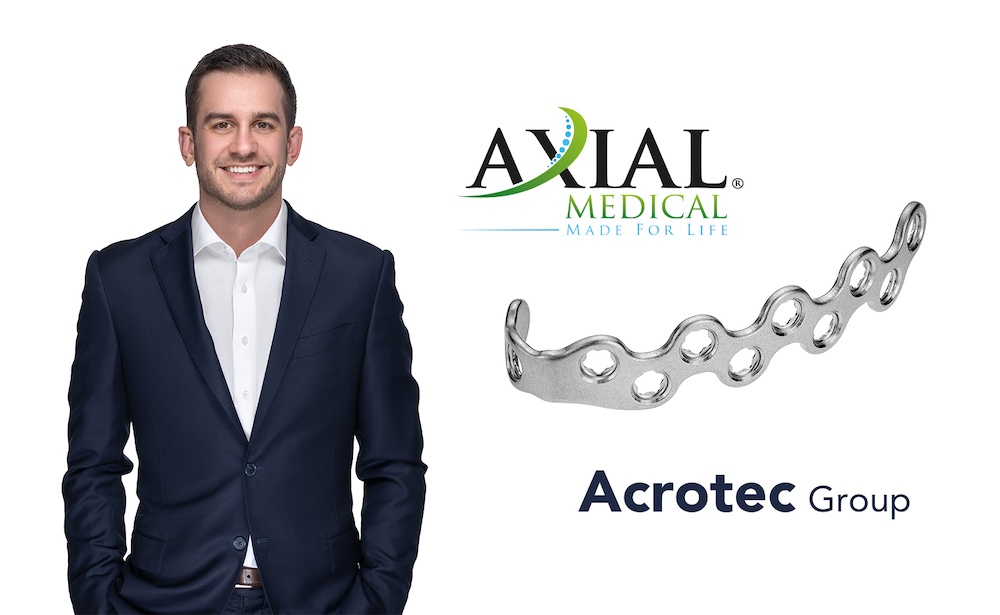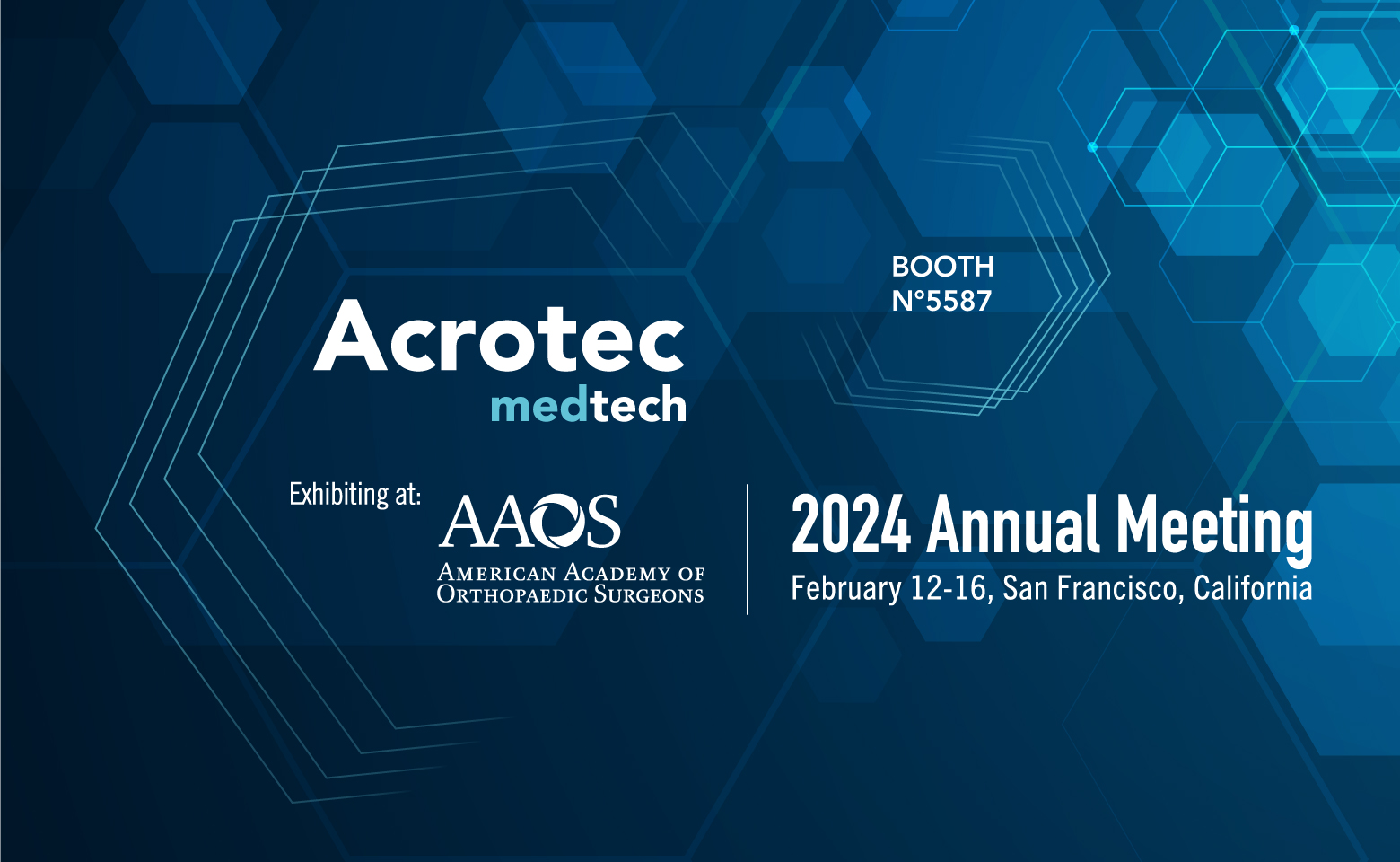Based in Pennsylvania, a few hours from New York, Axial Medical joined the Acrotec Group in January. The company intends to continue its growth on the American market with the help of its Swiss partners. Read the interview with Vincent Visco, co-founder and CEO of Axial Medical by Marina Hofstetter for DeviceMed magazine.
Could you briefly outline the history of your company?
My father and I founded Axial Medical in 2014. We were both familiar with the medical technology field because my father had previously run a company, Vistek Precision, which machined spinal implants, among other things. I had worked for that company as a salesman during college and then worked for Stryker Orthopaedics, which primarily manufactured trauma and reconstruction implants, a very different specialization than spinal implants, primarily in terms of volume. Having both the vision of a huge market potential and a growing motivation to start my own business, I pushed my father to take over the business. We started with the help of some former Vistek employees and 3 or 4 machines. Today we employ about 50 people and have a fleet of 60 CNC machines. We have opted for a different organization than Vistek Precision by designating a specialist for each field, which optimizes the performance of our team.
In which sectors are you specialized?
We work exclusively for the medical industry and produce almost exclusively implants. In exceptional cases, we may manufacture an instrument for one of our customers, but we only do so if the customer insists, as this is not our core business. We focus mainly on large series production, not on customized single parts. Our business is evenly divided between spinal and extremity implants. For extremities, we produce cannulated screws of course, but what sets us apart is our ability to manufacture complex anatomical plates that adapt perfectly to the morphology of the patients. In the field of spine, we manufacture all types of prostheses but also very complex expandable implants. The latter are considered semi-customized implants and function in the same way as a car jack. Their width and length are given, and the height is adjustable to the patient’s needs by simply applying a precise torque to the implant once it is in place at the required location in the spine.
What are the challenges in producing these expandable implants?
These implants are made up of about 15 tiny titanium components that must fit together perfectly. Dimensional tolerances are very tight and expansion must be smooth. The implants are subjected to intensive fatigue tests. The expected quality requires that we produce the individual components on our machines with extreme precision. We generally have tolerances of 5 microns, which is acceptable for a single component. The challenge is to make 15 components work together smoothly, without the addition of foreign elements, all with dimensional tolerances of no more than 5 microns.
What types of machines do you have?
About half of our machines are Citizen sliding headstock machines, which we call Swiss machines. We use them to produce cannulated screws, screws and other very complicated parts. A little less than half are 5-axis CNC milling machines. Finally, we have several wire EDM machines to produce expandable spinal implants, as these machines are extremely precise and allow us to meet the very stringent requirements of these implants. Thanks to our ability to automate our machines, both in-house and with the help of robots, we operate 24 hours a day, 7 days a week.
You recently joined the Acrotec group. What are the reasons for this?
The agreement was signed in December 2022 and concluded on January 31, 2023. We have grown very rapidly since Axial was founded. We have gone from 0 to over 20 million dollars in a few years. But once you get to a certain size, it becomes more difficult to grow, especially in a family business. In addition, it is very intimidating to go out on your own to grow beyond $50 million. Being part of a group like Acrotec is a very good business decision.
How is the company now organized from a managerial point of view?
The two people most involved in Axial’s operations are my brother Nick and myself. My brother is the operations manager. We work very well together and wanted to keep it that way. But in the medical outsourcing world, large companies usually acquire smaller companies to put their brand on them. We weren’t looking to be bought out, but we wanted a partnership that would allow us to stay who we are while helping us grow further. That’s what appealed to us about the deal we struck with the Acrotec Group.
What do you expect from the future as a member of the Acrotec Group?
First and foremost, we are excited to be able to offer our customers the skills and expertise of the other companies in the group. Joining Acrotec will also allow us to pursue our growth objectives and continue to expand in the U.S. market by sticking to what we know. We will do this by working hand in hand with the Swiss companies in the group. Like Axial, Acrotec is an innovative company, and I am also excited to prove to our customers and competitors how this partnership model is a win-win solution. Our customers will still have the advantage of working with a small company, focused on their needs, while benefiting from the advantages of having multiple specializations within the group.
To read the entire interview in French, click here.


